Bad breath, medically known as halitosis, can be more than just a minor inconvenience. It can cause embarrassment and anxiety, impacting your confidence in social and professional settings. While a piece of gum or a mint can offer a temporary fix, understanding the root causes of bad breath is the first step toward finding a lasting solution and maintaining excellent oral care.
At Mt. Diablo Family Dentistry, we believe that knowledge is power, especially when it comes to your health. This guide will walk you through the common causes of halitosis, effective prevention techniques, and the signs that indicate it’s time to seek professional care. With the right approach, you can achieve consistently fresh breath and a healthier smile.
What Causes Bad Breath?
Halitosis is often a sign of an underlying issue. Identifying the source is crucial for effective treatment. Here are some of the most common culprits.
Food and Drink
What you consume plays a significant role in the freshness of your breath. Foods with strong odors, such as garlic, onions, and certain spices, contain pungent oils that enter your bloodstream after digestion. These oils are then carried to your lungs and exhaled, causing a lingering odor that can last for hours. Coffee and alcohol can also contribute by promoting a dry mouth, which is an ideal environment for odor-causing bacteria to thrive.
Poor Oral Hygiene
The most frequent cause of chronic bad breath is poor oral care. If you don't brush and floss daily, food particles can get stuck in your teeth and on your tongue. Bacteria in your mouth break down these particles, releasing foul-smelling sulfur compounds. Over time, this can lead to plaque buildup, a sticky film of bacteria that irritates the gums and can cause more serious problems like cavities and gum disease.
Dry Mouth (Xerostomia)
Saliva is your mouth's natural cleaning agent. It helps wash away food particles and neutralize acids produced by plaque. When your mouth doesn't produce enough saliva, a condition called xerostomia or dry mouth occurs. This creates a perfect breeding ground for bacteria, leading to halitosis. Dry mouth can be caused by certain medications, medical conditions like Sjögren's syndrome, or simply by breathing through your mouth.
Tobacco Products
Smoking and chewing tobacco are notorious for causing bad breath. They leave a distinct, unpleasant odor and also dry out your mouth. Furthermore, tobacco users are at a much higher risk for developing gum disease, another major contributor to halitosis.
Medical Conditions
In some cases, persistent bad breath can be a symptom of a more serious health problem. These conditions can include:
- Gum Disease (Periodontitis): An infection of the gums caused by plaque buildup, leading to deep pockets between teeth and gums that trap odor-causing bacteria.
- Respiratory Tract Infections: Issues like sinusitis, bronchitis, or tonsillitis can cause postnasal drip, which contributes to bad breath.
- Systemic Diseases: Certain illnesses, such as diabetes, liver disease, or kidney problems, can produce specific chemicals in the body that are exhaled as an unpleasant odor.
- Gastrointestinal Issues: Conditions like acid reflux (GERD) can cause stomach acids to flow back into the esophagus, resulting in a sour or foul smell.
How to Prevent Bad Breath
The good news is that most cases of halitosis can be prevented with a consistent oral care routine and simple lifestyle adjustments.
Master Your Brushing and Flossing Technique
An ounce of prevention is worth a pound of cure, and that certainly applies to your oral health. Brushing your teeth twice a day for at least two minutes is essential. Use a soft-bristled toothbrush and fluoride toothpaste to effectively remove food particles and plaque.
Don't forget to clean your tongue, where a significant amount of odor-causing bacteria can accumulate. You can use your toothbrush or a dedicated tongue scraper.
Flossing at least once a day is just as important. It removes plaque and food particles from between your teeth and under the gumline—areas your toothbrush can't reach.
Use Mouthwash Effectively
An antimicrobial mouthwash can be a helpful addition to your routine. It can kill bacteria and neutralize odors, providing a fresh feeling. However, it's important to choose a therapeutic mouthwash that addresses the root cause rather than a cosmetic one that simply masks the smell. Dr. Naina Jain at our Concord office can recommend a mouthwash that is right for you. Avoid mouthwashes with high alcohol content, as they can dry out your mouth and worsen the problem.
Stay Hydrated Throughout the Day
Drinking plenty of water is one of the simplest and most effective ways to combat bad breath. Water helps keep your mouth moist and washes away food particles and bacteria. Aim to sip water regularly throughout the day, especially between meals.
Make Smart Dietary Choices
Adjusting your diet can also make a significant difference. Try to limit your intake of foods known to cause bad breath. Incorporate more fresh fruits and vegetables, like apples, carrots, and celery. These crunchy foods can help clean your teeth by stimulating saliva production and scrubbing away plaque.
When to See a Dentist
If you’ve improved your oral care habits and made lifestyle changes but your bad breath persists, it’s time to schedule a visit with your dentist. A professional can help identify the underlying cause and recommend an appropriate treatment plan.
You should see a dentist if you experience:
- Persistent bad breath that doesn't go away.
- Bleeding, swollen, or tender gums.
- Pain when chewing or tooth sensitivity.
- A constant dry mouth.
These could be signs of gum disease or another medical condition that requires professional attention. Regular dental check-ups and cleanings are your best defense against oral health problems.
Take Control of Your Oral Health
Achieving and maintaining fresh breath is a key part of overall oral wellness and confidence. By understanding the causes of halitosis and adopting a consistent oral care routine, you can take control of your dental health. Remember to brush and floss daily, stay hydrated, and be mindful of your diet.
If you're in the Concord, CA area and struggling with persistent bad breath, don't hesitate to reach out. Dr. Naina Jain and the team at Mt. Diablo Family Dentistry are here to provide gentle, comprehensive care. Schedule an appointment today to get to the root of the problem and enjoy the confidence that comes with a healthy, fresh smile.



